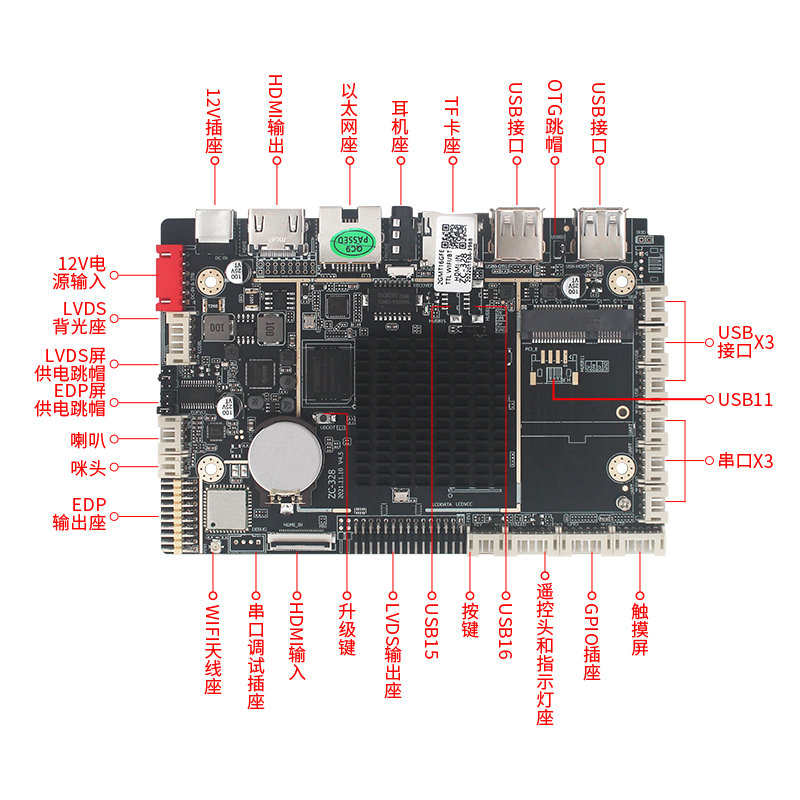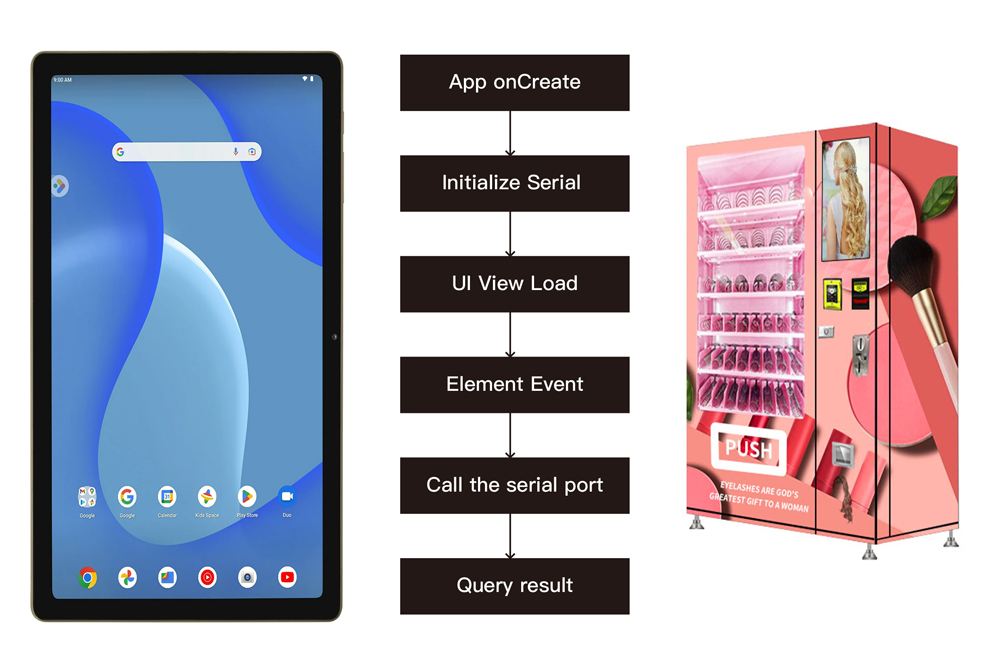Serial Communication

As shown in the above image, this hardware has 3 serial ports, and the addresses may be /dev/ttyS0 to /dev/ttyS8.
How to initialize the serial port.
A. Identify the serial port address.
kotlin
import cc.uling.usdk.USDK
import cc.uling.usdk.board.UBoard
import cc.uling.usdk.constants.ErrorConst
class MainActivity : ComponentActivity() {
// init zcapi
private var displayer = zcapi()
// serial baudrate
private var baudrate: Int = 9600
// serial driver
private lateinit var driver: UBoard
// serial address
var commid = "/dev/ttyS0"
override fun onCreate(savedInstanceState: Bundle?) {
// setting context
this.displayer.getContext(applicationContext)
// initialization of the USDK class
USDK.getInstance().init(application)
// Initialize the serial port and keep it resident in memory.
this.driver = USDK.getInstance().create(this.commid).apply {
this.EF_OpenDev(commid, baudrate)
}
}
override fun onDestroy() {
super.onDestroy()
if (this::driver.isInitialized) {
this.driver.EF_CloseDev()
}
}
}B. Dynamically query the serial port address.
Dynamically querying the serial port address may cause blocking, so it is necessary to start a separate thread for querying.
kotlin
import android.serialport.SerialPortFinder
import android.widget.Toast
import com.zcapi
import cc.uling.usdk.USDK
import cc.uling.usdk.board.UBoard
import cc.uling.usdk.board.wz.para.SVReplyPara
import cc.uling.usdk.constants.ErrorConst
class MainActivity : ComponentActivity() {
// init zcapi
private var displayer = zcapi()
// serial baudrate
private var baudrate: Int = 9600
// serial driver
private lateinit var driver: UBoard
@OptIn(DelicateCoroutinesApi::class)
override fun onCreate(savedInstanceState: Bundle?) {
// setting context
this.displayer.getContext(applicationContext)
// initialization of the USDK class
USDK.getInstance().init(application)
// initialization of the serial driver
GlobalScope.launch(Dispatchers.IO) {
async {
initSerialDriver()
}.await()
}
// ...
}
private fun initSerialDriver(addr: Int = 1) {
val paths = SerialPortFinder().allDevicesPath.sorted()
try {
paths.forEachIndexed { _, path ->
val board = USDK.getInstance().create(path)
board.let {
val resp = it.EF_OpenDev(path, this.baudrate)
if (resp != ErrorConst.MDB_ERR_NO_ERR) {
return@forEachIndexed
}
val para = SVReplyPara(addr)
it.GetSoftwareVersion(para)
if (para.isOK && !this::driver.isInitialized) {
this.driver = it
}
}
}
// readHardwareConfig code ...
} catch (e: Exception) {
Toast.makeText(application, e.message, Toast.LENGTH_SHORT).show()
throw e
}
}
override fun onDestroy() {
super.onDestroy()
if (this::driver.isInitialized) {
this.driver.EF_CloseDev()
}
}
}
You can now perform vending machine operations using the USDK class.